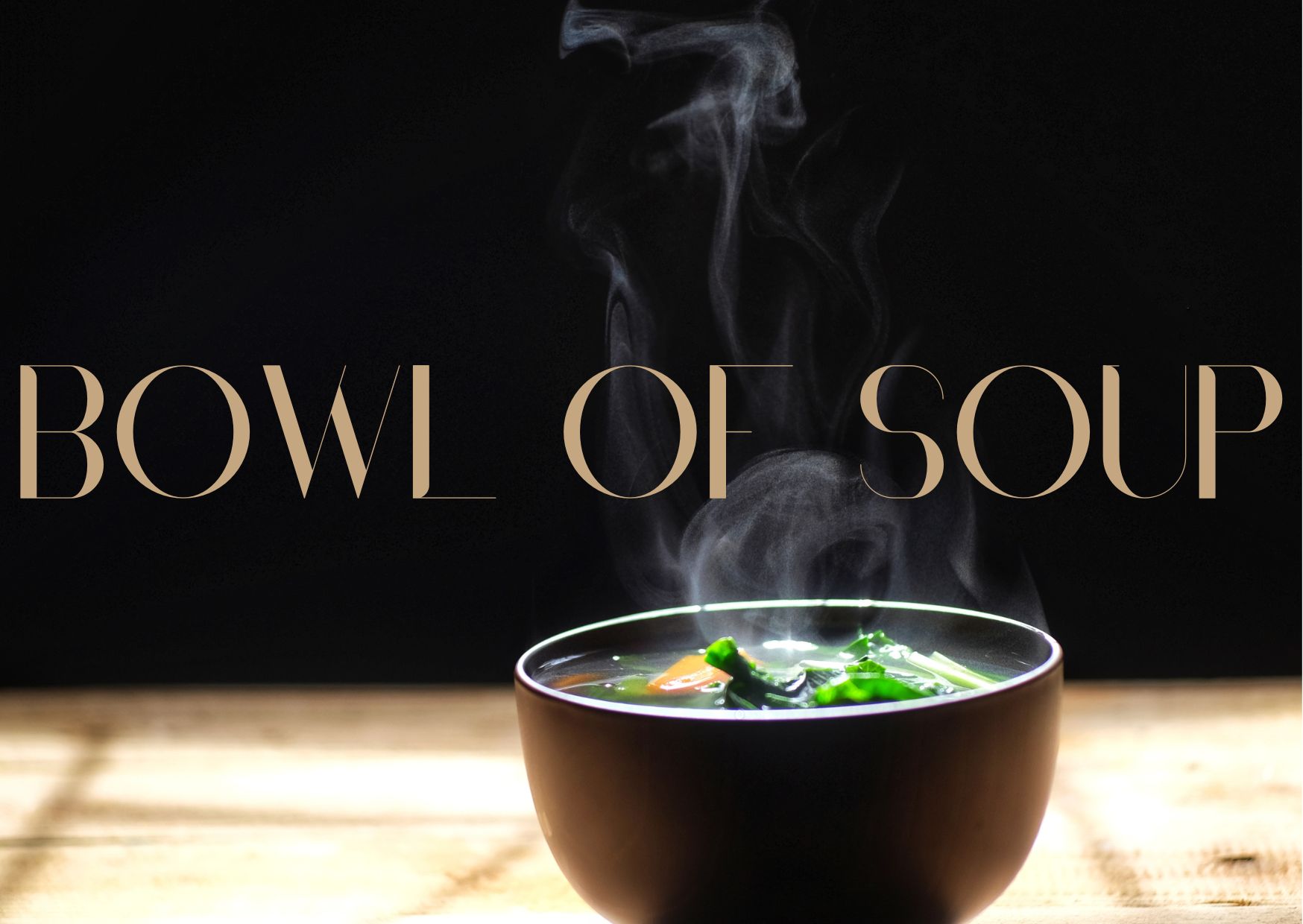
Bowl of Soup
I love autumn and winter for many reasons, but one of my favorite reasons is that I get to eat soups. Call me strange, but I like soup, although it is not fun to eat when it is 110 degrees outside. Amanda makes some dynamite soups, and I can’t wait for cooler weather to roll in so that the soups can come out. There is an ongoing debate that Amanda and I have with some of our old friends. Is soup a meal?
This question turns out to be very nuanced. It depends on what kind of soup and what you are serving with the soup. There are broths and consommés, or chowders and bisques- and these range from thin to thick; it depends on what you put into the soup. Is it just stock, or have you chopped up an entire cow and let that simmer on low heat? Will it be served with saltine crackers, bread, or cornbread?
There are a few different ways to consider whether or not soups are a meal. Some believe that soup is not and will never be a meal; it is merely a warm beverage with meat and vegetable chunks. You will never be able to convince one group that soup is a meal, even if it contains all the ingredients from the refrigerator. Another group will consider it a meal if served with some other filler, like bread or a salad. Their thought process is it just doesn’t have enough density to make it a meal.
And then there is my thought process: even if it is only bone broth, it is a meal. It fills up your stomach, provides nutrients, and in a pinch, you could survive for quite a while on bone broth; it might not be enjoyable or meet the guidelines for a well-balanced meal, but it would sustain you.
Understandably, in our culture, where food is abundant and readily available, soups of any kind might not seem filling or appetizing. However, for much of human history, boiling a pot full of meat and vegetables over a fire would have been the primary way to eat most foods, especially in large quantities. And yet, as delicious as soups can be, they usually leave us feeling hungry a few hours later. This realization is the tragedy of Esau; he is swindled out of a birthright for a bowl of soup.
Genesis 25:29-34 – “When Jacob had cooked a stew [one day,] Esau came in from the field and he was exhausted; 30 and Esau said to Jacob, “Please let me have a mouthful of that red stuff there, for I am exhausted.” Therefore he was called Edom by name. 31 But Jacob said, “First sell me your birthright.” 32 Esau said, “Look, I am about to die; so of what use then is the birthright to me?” 33 And Jacob said, “First swear to me”; so he swore [an oath] to him, and sold his birthright to Jacob. 34 Then Jacob gave Esau bread and lentil stew; and he ate and drank, and got up and went on his way. So Esau despised his birthright.”
Reading this passage, we should get immediate “Garden of Eden” imagery concerning humanity’s choices. However, the items are a little mixed up. There is a deceiver; however, instead of a snake, it is Jacob who presents a tempting offer. The choice is still an edible item, exchanging fruit for lentil soup; the question remains: will you consume it? The more significant question is, what will you trade the desires of the flesh for the future promises coming your way? The final tie-in to the Garden imagery is that “Life” becomes the driving factor. In Eden, Adam and Eve had full access to the Tree of Life; death did not concern them.
Now, Esau pleads for a bowl of soup to sustain his life, presenting the obvious question of which “life” is most important. Esau might not have had an afterlife in mind, but he was still securing prosperity for his lineage for generations upon generations. There are so many “Esaus” around us, people who only think about the temporary and never consider how their actions will affect others, including their children and grandchildren. Esau says it plainly, “I am about to die; so of what use then is the birthright to me?”
Rightfully so, the writer of Hebrews maligns Esau for this blunder. Could he really have been at the point of exhaustion and starvation? What hunter doesn’t go into the field with enough provisions for the journey home? This rhetorical question is more than likely an exaggeration; however, I have heard this kind of excuse before. “What use is ___________ to me? It won’t make a difference in the long run.” Fill in the blank with whatever you want: honesty, integrity, purity, modesty, etc. They see no practicality for doing things God’s way. To them, a birthright or any future endeavor is trivial compared to instant gratification.
Jacob certainly is a swindler in this instance. He is conniving and calculating because he knows the value of the birthright. Jacob is able to see that there is something more significant than the immediacy of hunger pangs. It’s hard to be Esau; in those moments, we have tunnel vision and can’t see the situation clearly. We think we know the right answer, but we should also look at the consequences and repercussions of our actions for others and our lives in the future. Otherwise, we will trade something eternal for a Bowl of Soup.